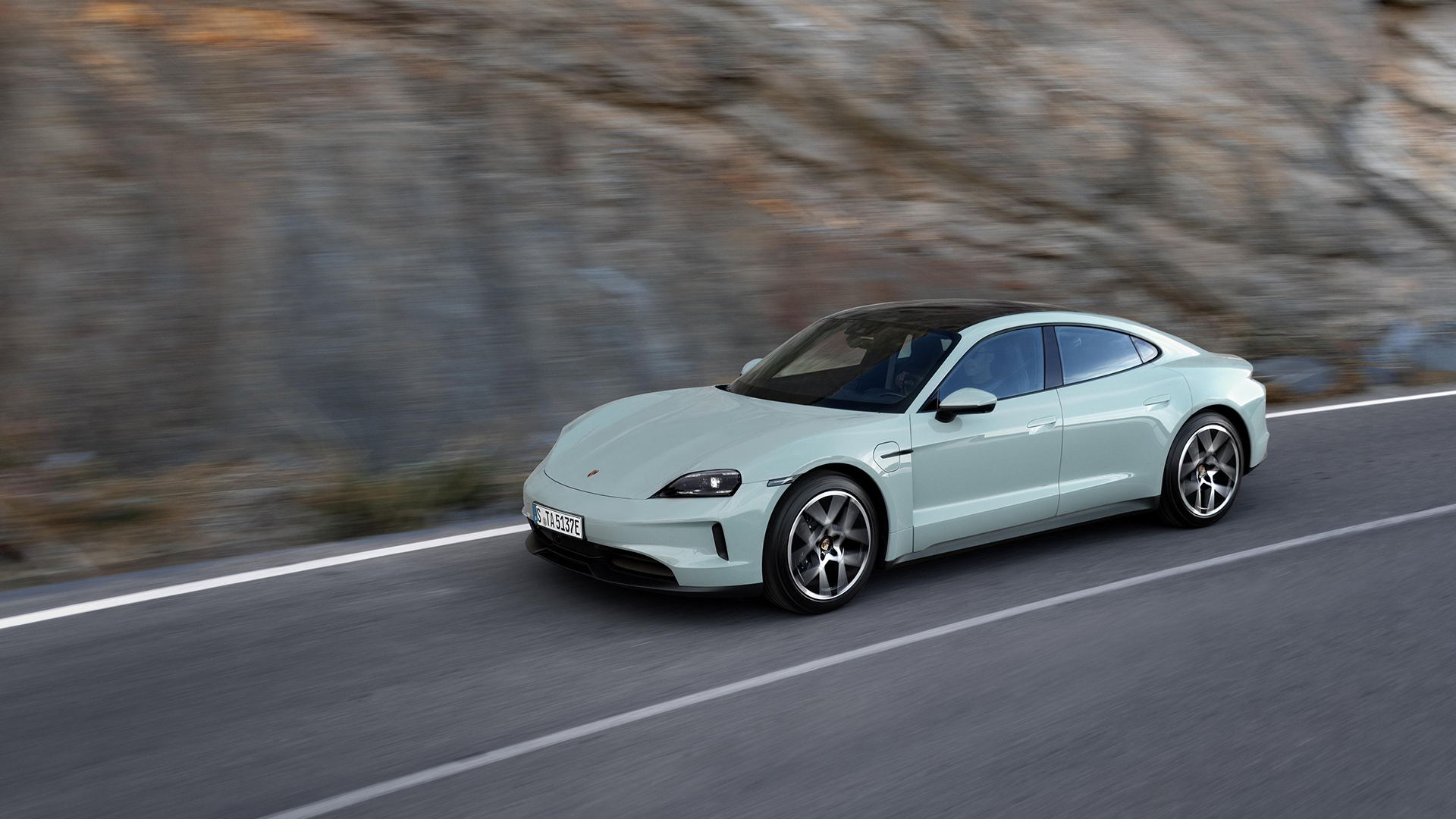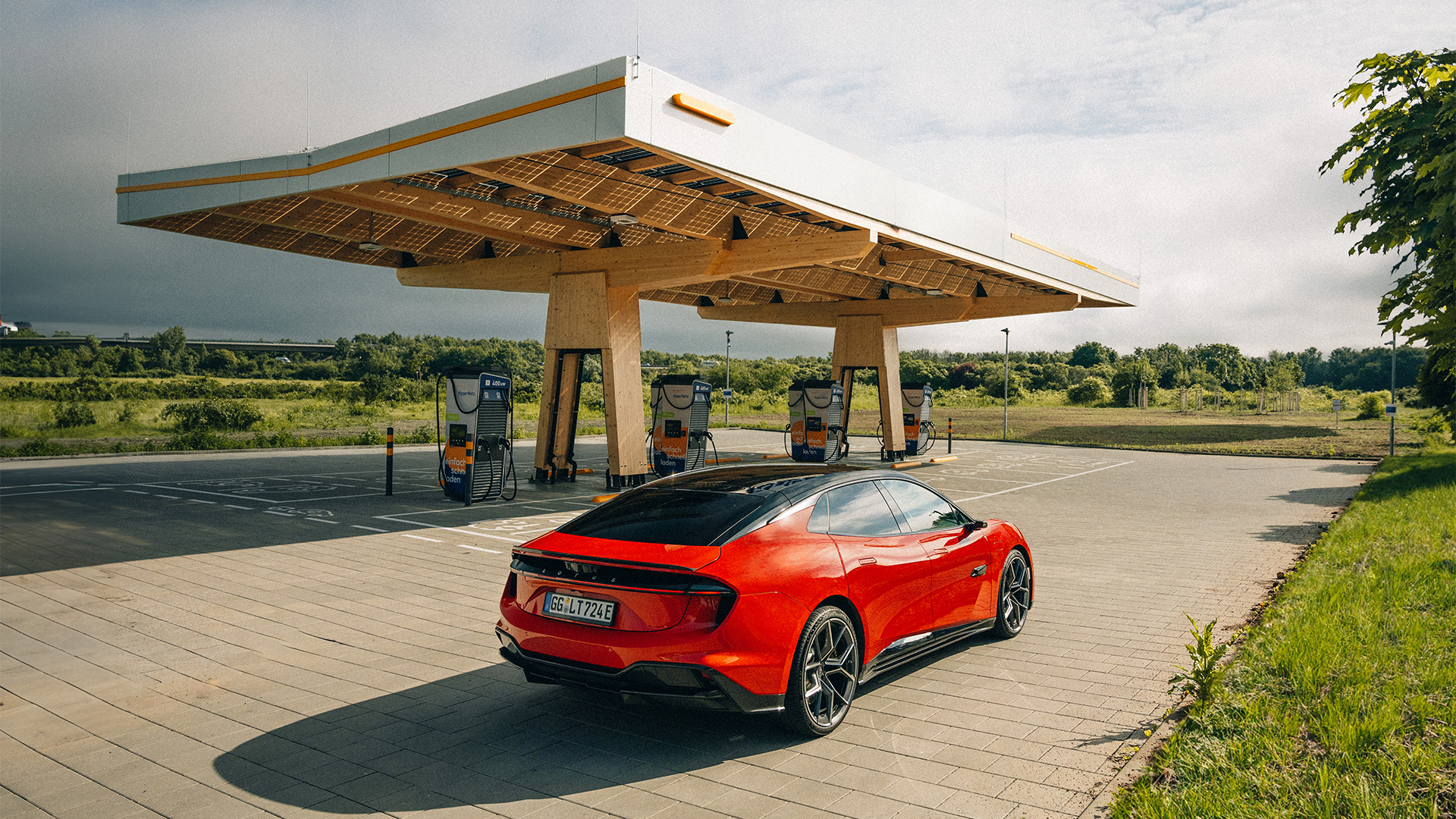- Porsche could introduce engines to its pure EV models
- The V8 petrol unit will live on into the 2030s
- Lotus, Bentley and Volvo have all back-tracked on pure EV plans
Porsche plans to stick with internal combustion engines for a lot longer than it originally intended, according to the company’s chief financial officer Lutz Meschke – and it isn’t the only big EV maker making those noises.
Back in 2022, Porsche said that 80% of its new deliveries would be battery electric vehicles (BEVs) by 2030, committing several of its most popular models to make the switch to electric propulsion.
Citing slumping electric vehicle sales and a cooling of demand from customers, Porsche is now rowing back on its plans, with Meschke telling Automotive News Europe that there is a strong possibility those pure electric models slated for future release will also come with a combustion engine or hybrid option.
“What is clear is that we are sticking with the combustion engine for much longer,” he explained in an interview following the German marque’s third quarter earnings results, which revealed the all-electric Taycan model had experienced a 50% dip in sales compared to the previous quarter.

More recently, Porsche said that the V8 petrol engine that is found in the most potent Cayenne and Panamera models will remain in production “well into the 2030s”, while future models that have previously been touted as BEVs (Macan, Boxster and upcoming Cayman) are looking increasingly likely to feature combustion engines in the near future.
“A lot of customers in the premium and luxury segment are looking in the direction of combustion-engined cars, there’s a clear trend,” Porsche CFO Lutz Meschke told journalists during a conference call last month.
It is highly unlikely that the latest Macan will feature a combustion engine in its current guise, as it has been built on the Premium Platform Electric (PPE) platform that is dedicated to electric vehicles.
Similarly, there has been a massive investment in making sure its future Boxster and Cayman models would also ride on the same platform, although Meschke said the company is “very flexible” and that the production line in Leipzig, Germany, is capable of producing different options spanning combustion engines, hybrids, and electrified cars.
Lotus pulls a U-turn

Porsche isn’t the only high profile automotive manufacturer to backtrack on plans for an increased electric vehicle line-up. Ford famously pulled the plug on a new version of the F-150 Lightning in the US earlier this year, citing the fact that it wanted to focus its attention on hybrids, which it says are proving more popular among customers.
The Blue Oval has subsequently slowed production of its Explorer and Capri EV models in Europe due to slumping sales, causing huge lay-offs and redundancies among its staff. It has led some industry insiders to believe that Ford might not even sell passenger cars in the near future, becoming a commercial vehicle specialist in Europe instead.
To compound matters for BEVs further, the new boss of Lotus Europe, Dan Balmer, also told Auto Express that the company’s recently announced ‘Hyper Hybrid’ system would offer its customers an “EV-centric driving experience” but with the security of a petrol engine for longer journeys.
Since being purchased by the Chinese-owned Geely Holding Group, the British sports car maker has been vocal about the importance of electric vehicles to its line-up, currently only offering both the Emeya (above) and Eletre as pure battery EVs.
There is currently no word on what models will be first to receive Lotus’s ‘Hyper Hybrid’ system, but the flexibility of its Electric Premium Architecture doesn’t rule out a combustion engine being introduced to those aforementioned pure EVs.
Bentley also recently pushed its date to ditch the combustion engine back by five years, now citing 2035 as the target, while Volvo also said that it hopes “that 90 to 100 per cent” of its global sales will be electrified by the end of the decade, with plug-in hybrids still very much on the agenda.
